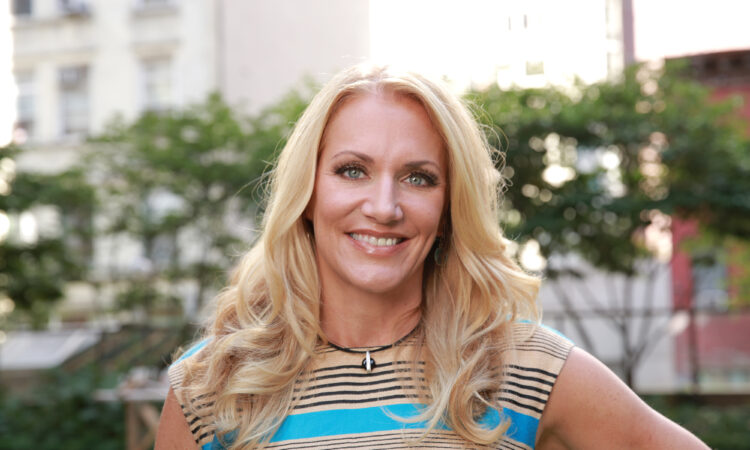
Julie Roehm is more than a marketing and customer success guru. She’s a successful entrepreneur who seeks to inspire others to take control of their ambition and make a difference. No wonder she found such a companion for discussion in her The Conversational podcast featuring entrepreneur and author Ruth Zuckerman. Like Roehm, Zukerman represents female leadership in a corporate America where women remain underrepresented. During their interview, the two powerhouse women discussed what it was like to start a business on their own and how women should feel empowered to believe in themselves despite the odds.
Ruth Zukerman’s Journey with SoulCycle
Zukerman shared that she has always been interested in athletics and a healthy lifestyle, initially going to college for dance. Realizing she would not be making a career as a dancer, Zukerman explored other pursuits, from office work to teaching fitness classes, before she landed on the idea of founding her own business. Along the way, she had to battle preconceived notions of what a woman’s place should be in the workplace. Julie Roehm found this relatable, noting that many women, especially in the 1980s and 1990s were challenged with male-dominated work environments.
Along the way, Ruth Zukerman developed a love of cycling and spin classes. She found the experience to be unique from anything else she had ever tried. “I felt physically exhilarated. I felt mentally exhilarated because there was something about being on a stationary bike…, you can close your eyes, you can tap into the music, you can tap into whatever mood you are in, the thoughts that are going on in your head and make it all work for you. It became this experience as opposed to an exercise class. I got it after the first class, and then I started going regularly, and it became a very important part of my life.” When her long-time instructor left, Zukerman stepped up to replace him, taking on a teaching role within her exercise community. She eventually partnered with a student to found her own studio in New York City, and SoulCycle was born.
Having never been an entrepreneur before, Ruth Zukerman was swept up in a world of operations and marketing branding, unlike anything she had ever experienced. She noted how the team had to get creative when it came to branding their studio and adding an aura of exclusivity around the club to draw in members. Without so much as signage to start their first studio, the company quickly became “a very exclusive kind of place where you had to be trendy and in the know to know about it. I mean, before we knew it, there were Escalades lined up down the block with SoulCycle riders.”
Lessons Learned from Entrepreneurship and Fitness Industry
The team grew SoulCycle to include three studios before Zukerman was led to leave the company due to issues with her partners. She quickly learned the importance of trusting your business partners while also putting protections in place if circumstances should change. “Things did not turn out to be very easy for me in that I made some mistakes in terms of lack of legal protection. And there were pitfalls along the way because the partnership was ultimately not working out.” However, Zukerman was an essential component of the SoulCycle brand; where she went, her clientele followed. What resulted was an ambition to find yet another business that would incorporate technology into the spin experience, and that’s when Flywheel was founded.
While finding it awkward to compete with the original business she started in 2005, Zukerman embraced the challenge of showing her loyal customers and her new business partners at Flywheel that she was a leading subject matter expert when it came to the spin industry. She proved the naysayers wrong, engaging with the press to correct misinformation about her involvement with the two companies and striving to set an example for her twin girls that women can do anything they set their minds to. Her company was so successful, opening 22 studios nationwide by 2013 that it began receiving offers from buyers and investors. The result was the sale of her business and the ability for Zukerman to begin focusing on other interests, including the publication of her memoirs.
Next Steps for Ruth Zukerman
The future looks bright for Zukerman, who is open-minded about the next opportunity she plans to pursue. Writing another book is not out of the picture, nor is starting a third business: “Daunting to do it again. But it’s not out of the realm of possibilities at all.” Roehm remains inspired by Zukerman’s example: “For me, your story embodies sort of what The Conversational is about, which is you hear about successful people’s careers and these moments that come along that kind of can knock you off course and what can happen. In some ways, sad as it was for you to be knocked off course, you could certainly declare victory with what you’ve done.”
Zukerman noted that the fitness industry has evolved since her first business venture, citing the growth of in-home exercise equipment and programs such as Peloton. Much of this is likely attributed to the COVID-19 pandemic, which changed the way that people sought their physical fitness at a time when gyms were simply off-limits. Julie Roehm went through a similar experience in the retail sector, where she and her teams had to get innovative with their curbside and online ordering options to ensure that the Party City brand remained accessible and engaged with customers during a time of social distancing. Now with things returning to a more regular cadence, there are more opportunities for brands, and the women leading them, to connect directly with their customers in creative ways to keep business moving strongly.
Listen to the full podcast episode here.





